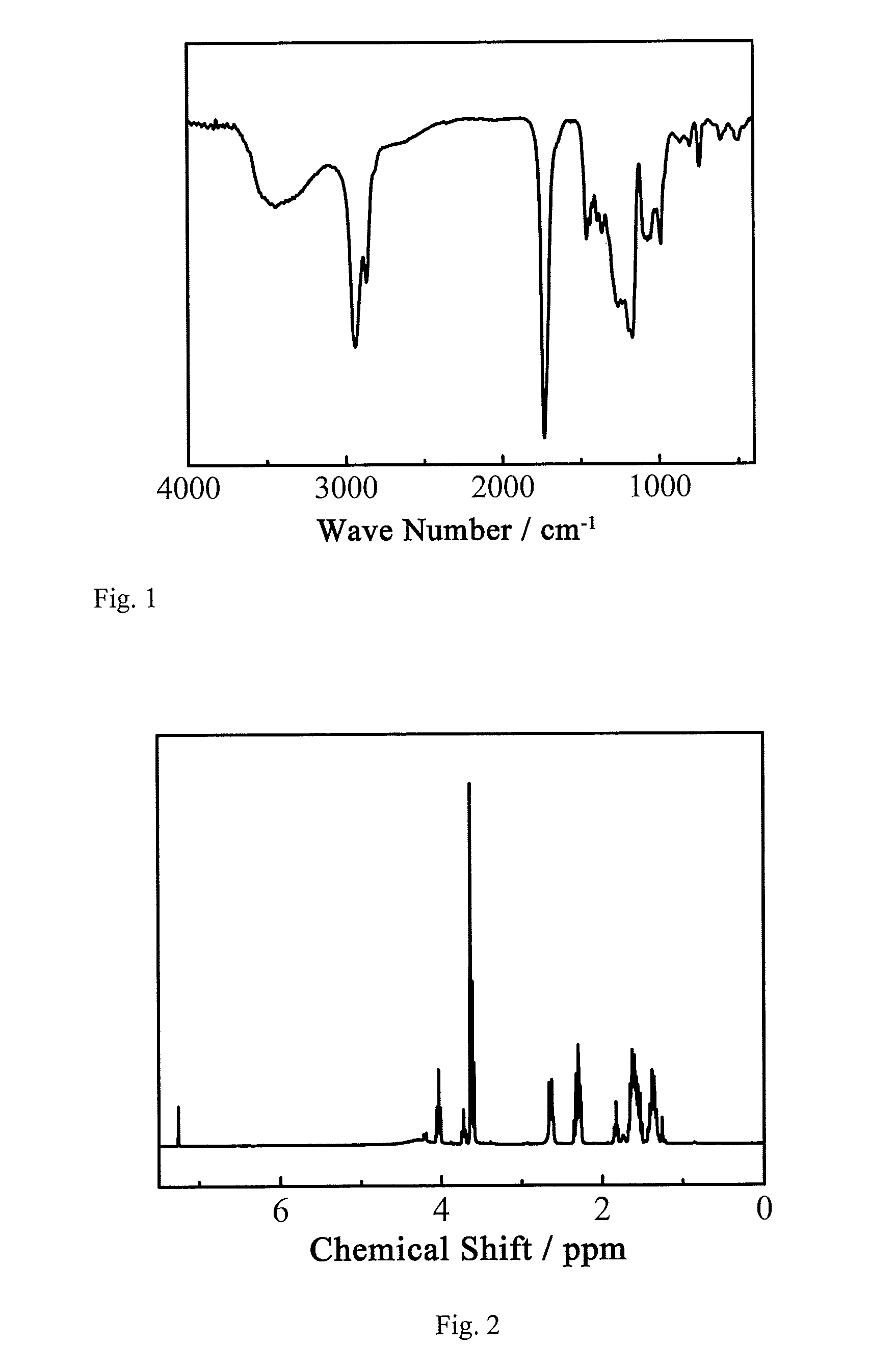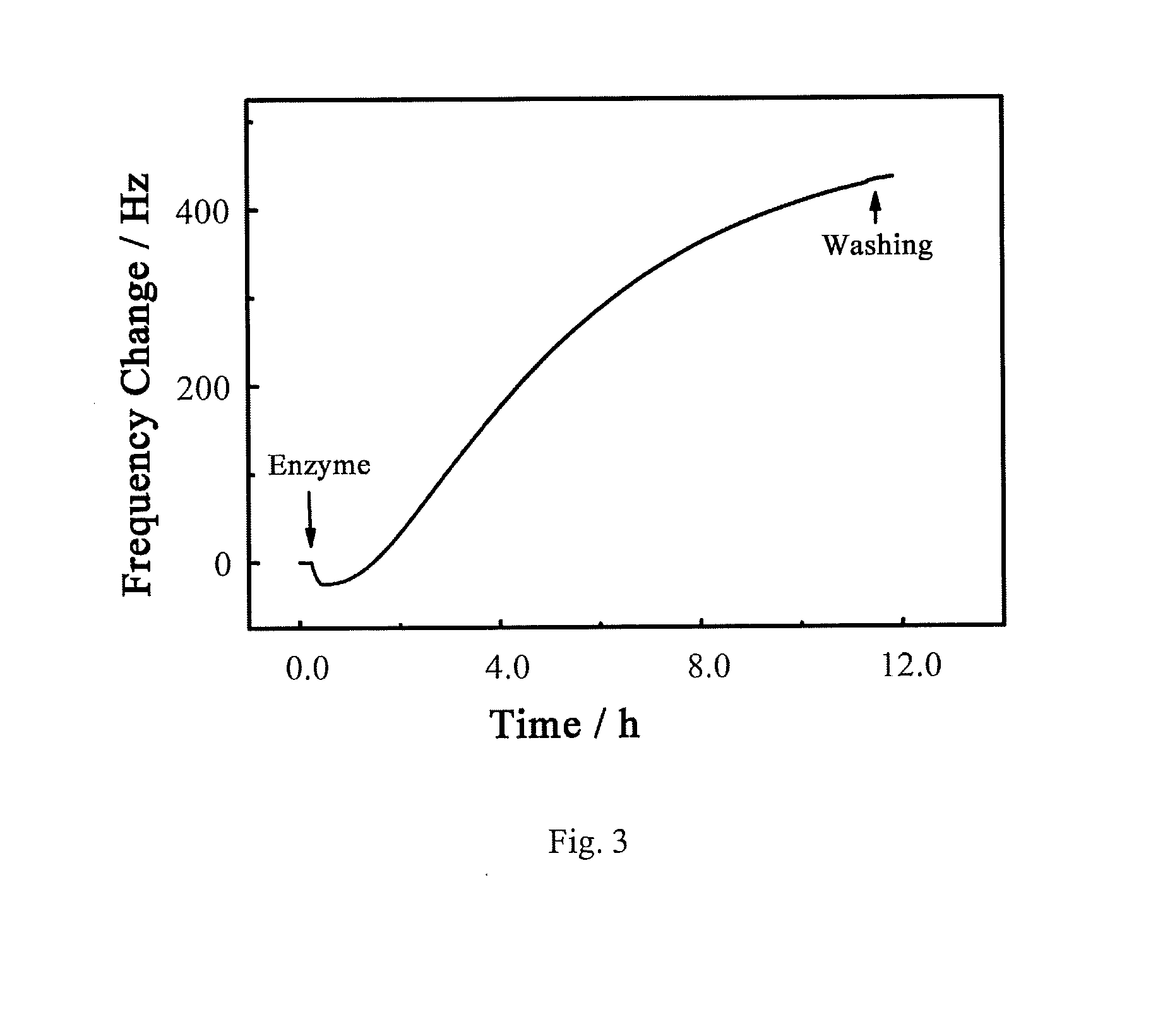Method for preparing main chain scission-type polysilyl (METH)acrylate resin and application thereof
a technology of methacrylate resin and main chain, which is applied in the field of sillyl ester resin, can solve the problems of reducing the service life of weapon equipment, hazard to marine transportation and exploration, development and utilization of marine resources, and reducing the surface roughness, so as to reduce the surface roughness, excellent drag reduction performance, and reduce the effect of sailing resistan
- Summary
- Abstract
- Description
- Claims
- Application Information
AI Technical Summary
Benefits of technology
Problems solved by technology
Method used
Image
Examples
example 1
[0028]50 g of caprolactone, 50 g of trimethylsily methacrylate, 0.1 g of methanol and 100 ml of xylene were added in a 250 ml dried three-neck flask equipped with a stirrer and a thermometer, added 100 μl of phosphazene (t-BuP4) solution in n-hexane, reacted at 25° C. for 6 h, then precipitated in methanol, and dried under vacuum, so as to obtain a poly (caprolactone-trimethylsilyl methacrylate), with a yield of 90%. As shown in the infrared spectrum in FIG. 1, the occurrence of 1730 cm−1 (an absorption peak corresponding to ester group of the caprolactone), 2860 cm−1 (an absorption peak corresponding to CH2 of the caprolactone) and 2950 cm−1 (an absorption peak corresponding to CH3 of the silyl ester), indicated that the target product was successful synthesized. As shown in the nuclear magnetic spectrum in FIG. 2, the occurrence of the chemical shift δ=0.87 (an absorption peak corresponding to CH3 in the silyl ester) and the four peaks at δ=1.32-1.45 ppm, 1.55-1.72 ppm, 2.25-2.40 ...
example 2
[0031]10 g of lactide, 90 g of triisopropylsilyl acrylate, 0.01 g of diethylene glycol, and 100 ml of tetrahydrofuran were added in a 250 ml sealing tube, frozen in liquid nitrogen, and replaced with nitrogen gas for three times, then added 70 μL of t-BuP4 solution in n-hexane under a nitrogen atmosphere, sealed the tube in molten state, and reacted at 60° C. for 2 h, then precipitated in 100 mL of methanol, and dried under vacuum for 12 h, so as to obtain a polymer with a number average molecular weight of 1.5×104 g / mol as determined by gel permeation chromatography and a yield of 94%. 20 g of the polymer was mixed with 120 g of cuprous oxide, 20 g of pyridyltriphenyl borane, 10 g of red iron oxide and 30 g of methyl isobutyl ketone under stirring, so as to prepare a marine antifouling coating. The marine antifouling coating was brushed on an epoxy resin panel to form a film, and the shallow submergence tests made in the Xiamen sea (April, 2012-February, 2013) showed that there wer...
example 3
[0032]180 g of ethylene carbonate, 10 g tri-n-butylsilyl acrylate, 10 g of methyl methacrylate, and 0.02 g of methanol were added in a 500 mL three-neck flask, frozen in liquid nitrogen, replaced with nitrogen gas for three times, then added 70 μL of t-BuP4 solution in n-hexane rapidly under nitrogen atmosphere, and reacted at 150° C. for 12 h. After the reaction was completed, the obtained material was precipitated in methanol, filtrated, and dried under vacuum, so as to obtain a polymer with a number average molecular weight of 2.4×104 g / mol as determined by gel permeation chromatography and a yield of 90%. 30 g of the polymer was mixed with 40 g of cuprous oxide, 7 g of 4,5-dichloro-2-n-octyl-4-isothiazolinyl-3-one, 7 g of zinc oxide, 6 g of calcium carbonate, 3 g of bentonite, and 7 g of butanone under stirring so as to prepare a marine antifouling coating. The marine antifouling coating was brushed on an epoxy resin panel to form a film, and the shallow submergence tests made i...
PUM
| Property | Measurement | Unit |
|---|---|---|
| temperature | aaaaa | aaaaa |
| temperature | aaaaa | aaaaa |
| mass | aaaaa | aaaaa |
Abstract
Description
Claims
Application Information
 Login to View More
Login to View More - R&D
- Intellectual Property
- Life Sciences
- Materials
- Tech Scout
- Unparalleled Data Quality
- Higher Quality Content
- 60% Fewer Hallucinations
Browse by: Latest US Patents, China's latest patents, Technical Efficacy Thesaurus, Application Domain, Technology Topic, Popular Technical Reports.
© 2025 PatSnap. All rights reserved.Legal|Privacy policy|Modern Slavery Act Transparency Statement|Sitemap|About US| Contact US: help@patsnap.com


